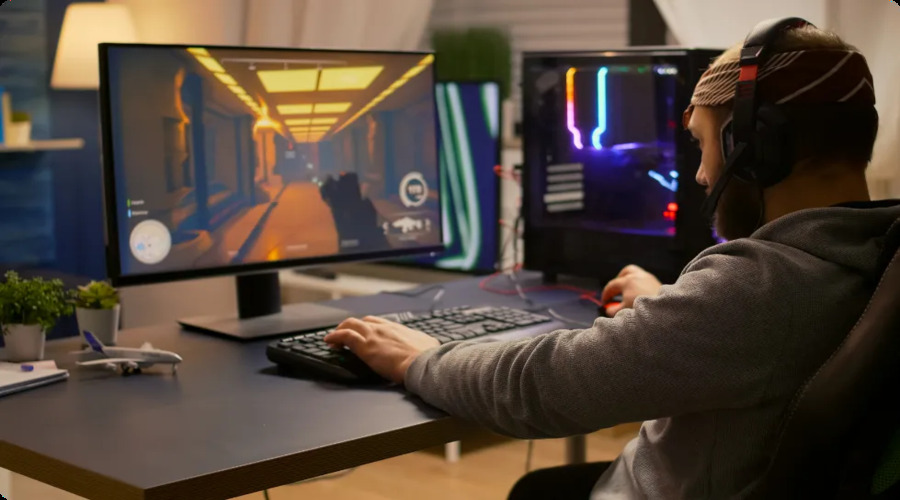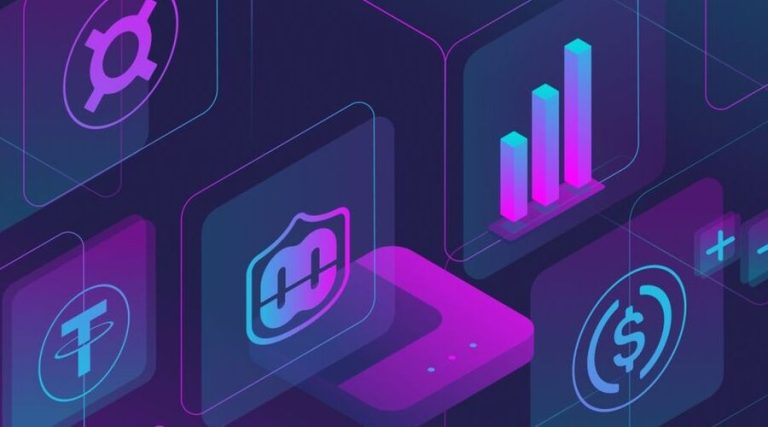
Introduction
In recent years, the gaming industry has witnessed a remarkable rise in indie game development. Independent game developers, or indies, are known for their creativity, innovative ideas, and unique gameplay experiences. However, indies often face numerous challenges, ranging from limited resources to distribution hurdles. This is where blockchain technology comes into play, offering a new paradigm that can empower indie game developers like never before.
Understanding Blockchain Technology
What is blockchain?
At its core, blockchain is a decentralized and immutable digital ledger that records transactions across multiple computers or nodes. Each transaction, or “block,” is securely linked to the previous one, forming a chain of information. This technology eliminates the need for intermediaries, such as banks or centralized authorities, enabling peer-to-peer interactions.
How does blockchain work?
Blockchain operates through a network of computers that validate and verify transactions using consensus mechanisms like proof-of-work or proof-of-stake. Once a transaction is verified, it becomes a permanent record within the blockchain, making it resistant to tampering or fraud. The transparency and security of blockchain make it an ideal solution for various industries, including gaming.
Challenges Faced by Indie Game Developers

Indie game developers face several challenges that can hinder their growth and success in the industry. These challenges include:
1. Lack of funding and resources:
Unlike large game development studios, indies often struggle with limited financial resources. They face difficulties in securing funding for their projects, which can result in compromised production values and marketing efforts.
2. Limited access to distribution channels:
Getting their games in front of a wide audience can be a significant challenge for indie developers. Traditional distribution channels dominated by established publishers make it difficult for them to compete and gain visibility.
3. Issues with intellectual property rights:
Protecting intellectual property rights is crucial for indie game developers. However, the existing systems for copyright and ownership verification can be complex and expensive, often favoring larger entities.
Empowering Indie Game Developers with Blockchain
Blockchain technology offers several solutions that can empower indie game developers and help them overcome their challenges.
1. Decentralized funding through cryptocurrencies:
Blockchain allows developers to crowdfund their projects through Initial Coin Offerings (ICOs) or token sales. This provides a decentralized funding model, allowing developers to connect directly with their audience and receive support in the form of cryptocurrencies.
2. Transparent and secure transaction systems:
Blockchain’s transparency and security make it an ideal platform for in-game transactions. With blockchain, players can securely purchase in-game items or digital assets, knowing that the transactions are transparent and verifiable.
3. Immutable and traceable ownership of in-game assets:
By leveraging blockchain, indie game developers can ensure that in-game assets and collectibles have provable ownership. This eliminates the risk of fraudulent or counterfeit items, providing players with a sense of trust and security.
Smart Contracts and Automation
Blockchain technology introduces smart contracts, which are self-executing agreements with predefined rules and conditions. These contracts can automate various aspects of game development and distribution.
1. Streamlining revenue sharing and royalties:
Smart contracts enable automatic revenue sharing among developers, artists, and other contributors. This eliminates the need for intermediaries and ensures fair and transparent distribution of earnings.
2. Facilitating peer-to-peer transactions:
Blockchain enables peer-to-peer transactions, allowing players to trade or sell in-game assets directly with one another. This fosters a vibrant and player-driven economy within the game, increasing user engagement and satisfaction.
Enhancing User Experience and Engagement
Blockchain technology brings new opportunities to enhance user experience and engagement in indie games.
1. Unique in-game items and digital scarcity:
Through blockchain, developers can create unique and scarce in-game items. These items can be tokenized as non-fungible tokens (NFTs), giving them distinct attributes and value. Players can collect, trade, and own these items securely and transparently.
2. Player-driven economies and marketplaces:
Blockchain-based games can empower players by allowing them to participate in the game’s economy. Players can create and run their virtual businesses, trade assets, and even earn real-world rewards, fostering a strong sense of ownership and engagement.
Blockchain-Based Platforms for Indie Game Development
Several blockchain-based platforms cater specifically to indie game developers, providing tools, frameworks, and ecosystems to create and distribute blockchain-integrated games.
1. Examples of blockchain gaming platforms:
Platforms like Ethereum, TRON, and Enjin offer developer-friendly environments for creating blockchain games. These platforms provide software development kits (SDKs), marketplaces, and infrastructure to simplify the integration of blockchain technology into indie games.
2. Benefits and opportunities for indie game developers:
Blockchain platforms offer indies the opportunity to tap into a growing market of blockchain gaming enthusiasts. By integrating blockchain technology, developers can differentiate their games, attract a dedicated community, and explore innovative monetization models.
Overcoming Challenges and Adoption Barriers
While blockchain technology holds immense potential for indie game developers, there are still challenges to address and adoption barriers to overcome.
1. Addressing scalability and transaction speed:
Blockchain networks face scalability issues, which can result in slower transaction speeds and higher fees. Developers need to explore scaling solutions to ensure smooth gameplay experiences and cost-effective transactions.
2. Educating developers about blockchain technology:
Many indie game developers may lack awareness or understanding of blockchain technology. Providing educational resources, tutorials, and documentation can bridge this knowledge gap and encourage wider adoption.
Future Outlook and Potential Impact
The integration of blockchain technology in the gaming industry is still in its early stages. However, the potential impact is significant.
1. NFTs and the future of digital ownership:
The rise of NFTs showcases the increasing demand for digital ownership and scarce digital assets. As blockchain technology evolves, we can expect more sophisticated NFT implementations that blur the line between virtual and physical worlds.
2. Mainstream adoption and industry disruption:
As blockchain-based games gain popularity and prove their value, we may see a shift towards decentralized gaming ecosystems. This could disrupt traditional distribution models, empower indie developers, and create new opportunities for gamers worldwide.
Gaming and Blockchain Communities:
The intersection of gaming and blockchain has given rise to vibrant communities that bring together gamers, developers, and blockchain enthusiasts. These communities serve as hubs for collaboration, knowledge sharing, and support for indie game developers looking to integrate blockchain technology into their games. Online forums, social media groups, and dedicated blockchain gaming events provide valuable networking opportunities and resources for indie developers. By actively participating in these communities, indie developers can connect with like-minded individuals, gain insights into best practices, and receive feedback on their projects. The collective knowledge and support within these communities can significantly benefit indie game developers seeking to navigate the world of blockchain gaming.
Securing Intellectual Property Rights:
One of the significant challenges faced by indie game developers is protecting their intellectual property rights. Blockchain technology offers a decentralized and immutable platform that can address this issue. By tokenizing game assets and leveraging smart contracts, developers can establish a transparent and tamper-proof record of ownership. This ensures that their creations are protected from unauthorized use or infringement. The use of blockchain technology in securing intellectual property rights creates a more trustless environment, benefiting both indie developers and players. Developers can have peace of mind knowing that their creations are safeguarded, while players can be confident that the in-game assets they acquire are legitimate and unique.
Tokenizing Game Economies:
Blockchain technology introduces the concept of tokenizing in-game economies, revolutionizing the way players interact with digital assets. By creating digital currencies or tokens within games, indie developers can design unique economies that add value and engagement for players. These tokens can serve as a means of purchasing in-game items, accessing premium content, or participating in special events. By tokenizing game economies, developers can create a more immersive and rewarding gaming experience for players. Additionally, these token economies open up new revenue streams for indie developers. They can introduce scarcity and rarity to certain in-game assets, making them highly sought after and valuable. This can drive demand and create opportunities for developers to monetize their games in innovative ways.
Challenges of Blockchain Integration:
While the potential benefits of blockchain integration in game development are vast, there are several challenges that developers need to consider. One significant challenge is scalability. Blockchain networks, especially those built on public blockchains, face limitations in terms of transaction throughput and speed. To ensure a smooth gameplay experience, developers need to explore scaling solutions, such as layer-two protocols or sidechains, that can handle a high volume of transactions without compromising performance. Another challenge is user experience. Blockchain technology can introduce additional steps and complexity for players, such as setting up wallets and managing private keys. Developers must strive to streamline the user experience and create intuitive interfaces that seamlessly integrate blockchain features without overwhelming players. Balancing the benefits of blockchain technology with the need for a smooth and enjoyable gaming experience is crucial for successful integration.
Examples of Successful Blockchain Games:
Several successful blockchain games have emerged, showcasing the potential and viability of blockchain technology in the gaming industry. One notable example is “Gods Unchained,” a blockchain-based trading card game that has gained popularity for its unique gameplay mechanics and ownership of digital assets. Players can collect and trade digital cards, which are represented as non-fungible tokens (NFTs) on the Ethereum blockchain. Another successful blockchain game is “The Sandbox,” a virtual world where players can create, own, and monetize their gaming experiences. Using blockchain technology, players can own and trade virtual land, assets, and creations, fostering a vibrant and player-driven ecosystem. These successful examples highlight the innovative possibilities that blockchain brings to the gaming industry and inspire indie developers to explore the potential of this technology in their own games.
Conclusion
Blockchain technology holds great promise for empowering indie game developers. By leveraging decentralized funding, transparent transactions, and smart contracts, developers can overcome funding challenges, enhance user engagement, and create unique gaming experiences. While there are still hurdles to overcome, the future of blockchain-integrated indie games looks bright.
I have been writing about cryptocurrencies for over two years and I’m widely considered one of the most knowledgeable and respected authors in the space. I have a deep understanding of the underlying technology and market dynamics, and my insights have helped countless investors make informed decisions about their portfolios. I’m a speaker and commentator, and my work has been featured in major publications such as CoinDesk, Forbes, and The Wall Street Journal. I also run a popular cryptocurrency trading signals service that has helped thousands of people make money in the volatile but potentially lucrative world of digital assets.


